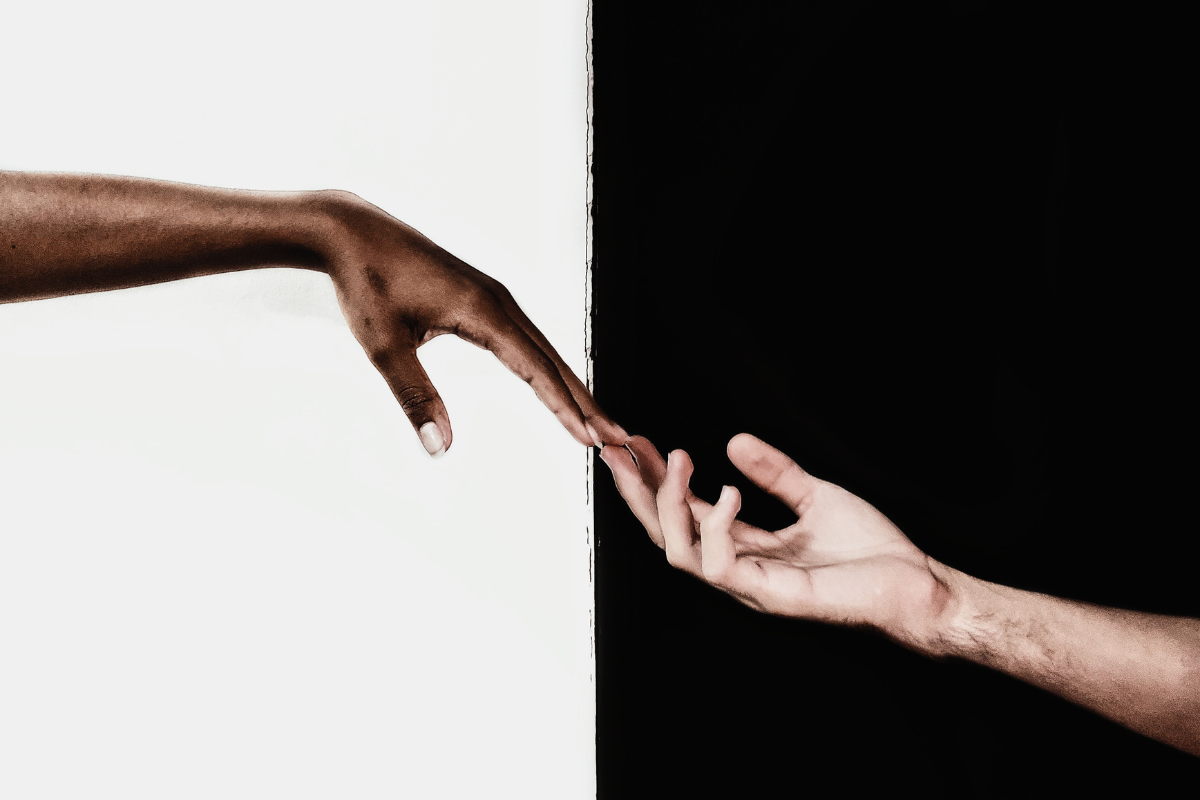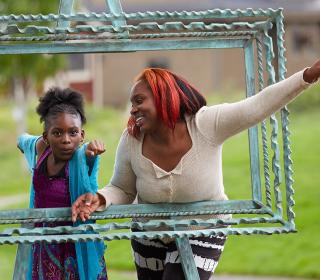What is Intersectionality?
No one experiences life the same way because no two people are exactly alike. Even if two people are born in the same city, grow up on the same street, and go to the same school, each person will face different challenges throughout their life. We are a myriad of social identities that stem from our race, gender, sexuality, religion, disabilities, culture, lifestyle, and beyond. These identities make us a wholly unique individual, but we often find solidarity with people or communities who share one or more of these traits with us.
Intersectionality, a term coined by Kimberlé Crenshaw, is a way of understanding how these different aspects of ourselves intersect, overlap, and are impacted by various systems of oppression. Through intersectionality, we are able to understand complex solidarities and see how people’s identities shape their experience in life based on their relationship to power.
Rather than using “this or that” logic, intersectionality acknowledges people’s linked oppressions and the simultaneous privilege plus oppression they may experience. For example: although a white woman and a Black woman might both experience bias based on their gender, a Black woman may experience additional bias based on her race. However, if this Black woman comes from a wealthy background, she might receive additional opportunities that a low-income white woman might not – though this won’t erase the inherent biases she’ll experience based on race, gender, and other possible factors.

Why does Intersectionality matter?
Intersectionality is a lens used to ensure no one is left out of our fight for justice and equal rights. It isn’t meant to create “oppression hierarchies”; instead, it helps us assess the difference between equity & equality and analyze how different forms of oppression and inequality reinforce one another. When we ignore this overlap and refuse to acknowledge the complexity of a problem in favor of tackling only one part of it, it can often reinforce existing inequalities. In some cases, it can even create animosity between different marginalized groups, who may feel like their problems are being overlooked or minimized in favor of others.

For many, diversity training is a familiar example of this. Although diversity training was created with the intention of ridding the workplace of racial biases, research has shown time and time again that these trainings don’t do much to dissipate bias or change the workplace environment. In fact, some diversity training can reinforce stereotypes and cause more harm than good. The reason why many “workshops” like these are unsuccessful is because they lack an intersectional mindset and only discuss interpersonal bias, rather than acknowledging that bias can be structural, institutional, and beyond. When this complexity is ignored, and when people are unwilling to address the role institutions and society plays in reinforcing or creating many of these biases, these workshops fail to create real change. Hostile work environments with harmful policies won't change even if workers do learn to reflect on their own internal bias.
Various social and political movements have faced similar struggles and failures because of this. Feminism, particularly the start of the feminist movement (often referred to as “First-Wave Feminism”) is a prime example of this. The initial movement was centered around the rights of white women, and only white women. Black women were excluded entirely, their rights regarded as an afterthought to some suffragettes while others, such as Susan B. Anthony, stated, “I will cut off this right arm of mine before I will ever work or demand the ballot for the Negro and not the woman.” Other women however, such as Sojourner Truth, recognized the intersection between gender and race wasn’t one they could afford to overlook, stating, “I feel that I have the right to have just as much as a man. There is a great stir about colored men getting their rights, but not a word about the colored women; and if colored men get their rights, and colored women not theirs, the colored men will be masters over the women, and it will be just as bad as it was before. So I am for keeping the thing going while things are stirring; because if we wait till it is still, it will take a great while to get it going again.”

When overlapping oppressions are ignored, it’s easier for extremists to spread their ideology and create divides within progressive groups, turning the discussion into an “us vs. them” movement rather than a collaborative effort to fight for justice and equity for all. White supremacists, TERFs (trans exclusionary radical feminists), and various other extremist groups depend on this way of thinking to “other” marginalized people and mask their dangerous ideology through fear-mongering arguments that amount to “more rights for them means less rights for us.”
Intersectionality is vital because it allows people to see beyond the rigid identities such extremists promote, and it helps us understand that we are all more connected than we may realize. Our energy shouldn't be divided fighting amongst each other – we should be working together to dismantle the systems of oppression that affect us all.
Learn more about intersectionality and take collective action for equity at YWCA's upcoming Stand Against Racism Event.
Ana Rodriguez-Knutsen is the Content Specialist for YWCA's Marketing & Editorial team. From fiction writing to advocacy, Ana works with an intersectional mindset to uplift and amplify the voices of underrepresented communities.
We share the stories of our program participants, programs, and staff, as well as news about the agency and what’s happening in our King and Snohomish community.


